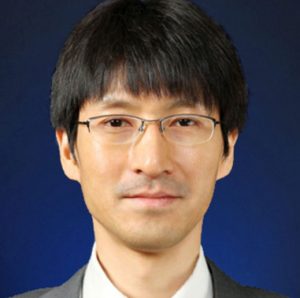6th International Research Symposium
- Elevating the quest for resilience to spring forward
- July 28 and 29, 2022
The 6th International Research conference of Uva Wellassa University was proudly held on the 28th and 29th of July 2022, as a virtual conference. The past conferences organized by Uva Wellassa University contributed significantly towards the investigation of novel avenues for value addition to Sri Lanka’s resources. The 6th International Research Conference of Uva Wellassa University of Sri Lanka-IRCUWU2022 dedicated on capacity building for enduring adverse conditions under the theme “Elevating the quest for resilience to spring forward” at a period in which Sri Lanka and the entire world is facing the challenge of Post-Covid-19 Economic Recovery.
Prof. J.L. Ratnasekera, the distinguished Chief Guest and Vice Chancellor of Uva Wellassa University, presided over the inaugural session of the IRCUWU2022. The event was held at the Main Lecture Theatre of Uva Wellassa University. A scholarly keynote speech on “A review on strategies to reduce feed cost in monogastrics” presented by Professor Jung Min Heo of the Chungnam National University, Daejeon, South Korea enlightened the event. Moreover, Professor Amiya Bhaumik from Lincoln University College, Petaling Jaya, Malaysia delivered the second keynote speech on “Opening avenues and broadening horizons in crisis situations” on the second day of the conference.
Academics, researchers, scientists, industrialists, professionals, graduates, and undergraduate students assembled for IRCUWU2022 to discover and publicize unique and innovative ideas and research findings belonging to ten thematic areas.
Scholars from all over the globe presented 221 research findings chosen from nearly 500 abstracts submitted in ten thematic areas at IRCUWU2022. The presented IRCUWU2022 abstracts are published online as an electronic archive in the university web system. The best scientific study from each track was selected based on panel members’ feedback, encouraging researchers to bring on more impeccable inventions.
 Professor Jung Min Heo
Professor Jung Min Heo
Division of Animal and Dairy Science
Chungnam National University Daejeon,
South Korea
www.cnu.ac.kr
: jmheo@cnu.ac.kr
A review of strategies to reduce feed cost in monogastrics
Increasing world population gradually makes an increasing demand for food based on agricultural commodities. Nevertheless, the limited availability of land and production make huge competition between humans and animals for crops, and also adverse effects could be made perhaps because of dramatic changes in climate. In this light, conventional feed ingredients for livestock increased demand along with the higher price. Particularly, corn and soybean meal are widely used as conventional feed ingredients in commercial poultry diets around the globe. Beyond the aforementioned challenges, some countries that used corn as biofuel feedstock made a huge impact (i.e., a price advance) on monogastric feed production. However, existing anti-nutritional factors in those alternative feed ingredients would be unlikely for its full replacement to corn and soybean in poultry diets. Overcoming these limitations, feeding exogenous enzymes to monogastric animals is the one major nutritional advancement during the last few decades. Nowadays, the feed industry accepts enzymes as a standard diet constituent for monogastric animals. Moreover, understanding the basic mechanisms of enzymes and the structure of substrates leads to increased utilization in the feed industry. A basic understanding of the feed enzymes that benefit nutrient digestibility and growth performance may result from reducing digesta viscosity, releasing the bound phosphorus from phytate hydrolysis, and increasing the nutrient availability by opening the encapsulated nutrients by disrupting the cell wall. Nonetheless, the questions are yet partially answered in enzyme technology. Collectively, the effectiveness of exogenous enzymes on broiler production and undergoing mechanisms are still a mystery and little is known. With this in mind, we are going to review a couple of recent studies and address if the enzymes are meaningful to monogastric animals.
Despite the demonstrated superiority of the net energy (NE) system over the digestible energy (DE) and metabolizable energy (ME) systems, its utility in monogastric (i.e., swine) diet formulation has not gained widespread application in some regions including North America, Asia, and Australasia. In this regard, we are going to review if the NE system along with standardized ileal digestibility (SID) is reliable and applicable for monogastrics.
 Prof. Dr. Amiya Bhaumik
Prof. Dr. Amiya Bhaumik
Lincoln University College Petaling Jaya,
Malaysia
www.lincoln.edu.my
: amiya@lincoln.edu.my
Opening avenues and broadening horizons in crisis situation
“Opening Avenues and Broadening Horizons in Crisis Situation” is the topic which has been chosen in a timely and perfect manner when Russia – Ukrain war, Sri Lanka and other countries are facing surmounting economic challenges.
In today’s volatile business environment we just try not to be only to bounce back but also should go beyond the status quo. To have such a mindset the entire society must work together collectively in a team approach. It cannot be just simply in a solo manner. Resilience is commonly thought of as “bouncing back,” like a spring, to our pre-crisis
norm. However, when events of this magnitude occur, we cannot return to “normal” life as we knew it before the crisis. Our world has changed and we must change with it. There is no going back. A more apt metaphor for resilience might be “bouncing forward” to face an uncertain future. This involves constructing a new sense of normality as we recalibrate our lives to face unanticipated challenges ahead. The abilities of the human bounce back from stress and predict health-related measures when controlling for other positive characteristics and resources. We assessed resilience, optimism, social support, mood clarity, spirituality, purpose in life and health- related measures.
To reinforce the theme of “Opening Avenues and Broadening Horizons in Crisis Situation” we need to work on creating positive entrepreneurship culture from the primary education system through to the university level. Entrepreneurship culture starts with a problem and moves with no restrictions to gather all resources to achieve the goal, thus developing the specialties, which are the core of any academic institution. In the meantime to get rid of the (tent thinking), which limits the establishment of new inter-specialties. In the view of this approach, Entrepreneurship culture should have a place, through believing in the mentality that sees the change as an opportunity, to deal with difficult challenges, in the absence of enough resources for the same. Then the education institution culture shall begin to change, leaving enough space for the Entrepreneurship culture spirit, which is an optimistic spirit in nature and adopt the ideas that are never afraid of failure. Positive entrepreneurship can only be injected into society when we train our entire educational ecosystem with value and ethics-based business education. The educational ecosystem includes not only students but also teachers, lecturers, professors, educational administrators and family members. Entrepreneurship education is a motivation for the economic growth of any country. Integrating entrepreneurship culture in education may result in the substantial formation of entrepreneurs and the building of their skills. The most important of all, changing the mentality and the spread of change spirit. Most likely the students shall see joining Entrepreneurship, as an effective factor in their upcoming life. The Keynote speech will explore the various aspects of value and ethics-based business education along with the importance of human life in the quest for resilience to spring forward.
